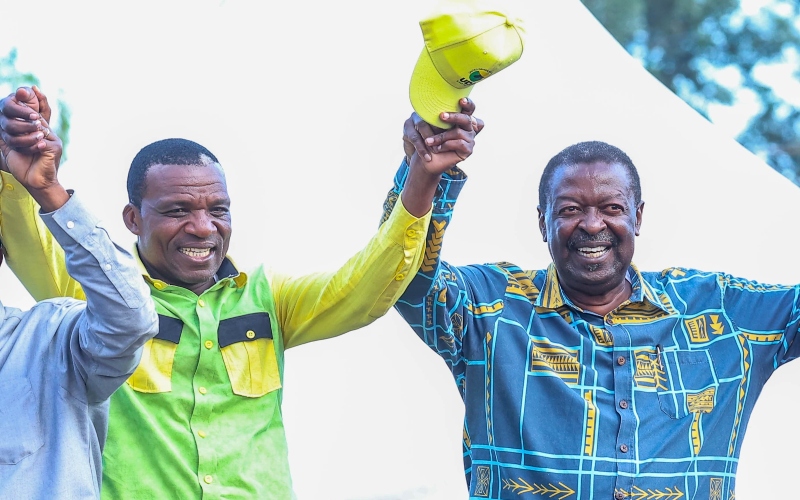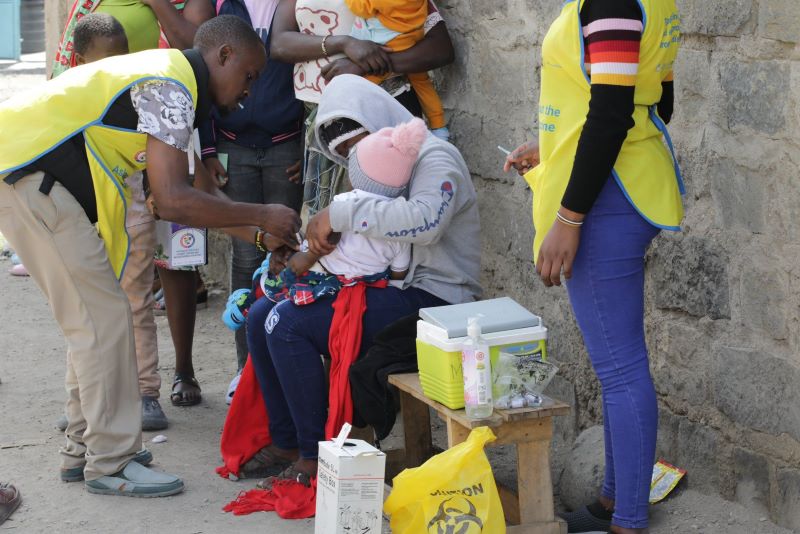I thank God I’m alive - Billy Mwangi speaks on 16 days of beatings, torture

While Mwangi’s family was relieved by his release, the trauma of the abduction left lasting emotional scars. Medical assessments confirmed that he had suffered both physical and psychological damage.
Billy Munyiri Mwangi, a college student from Embu, has opened up about the harrowing 16-day experience he endured after being abducted in December 2024.
Speaking for the first time since his discharge from hospital, Mwangi expressed his gratitude for surviving the traumatic ordeal.
More To Read
- Kenyan activists Bob Njagi, Nicholas Oyoo to sue Uganda in regional court over abduction
- Court told six KWS rangers abducted missing fisherman Brian Odhiambo
- Matiang’i raises alarm over Kenya’s image as calls grow for answers on missing Kenyans
- 35 Ugandans file landmark petition over alleged cross-border abduction by Kenyan forces
- Rights groups condemn silence from Ruto, Museveni as abducted Kenyan activists suffer in Uganda
- Amnesty flags arrests, abductions and killings ahead of Tanzania’s 2025 elections
“I thank God I’m alive,” Mwangi said on Tuesday, addressing the media from his parents’ home in Embu.
Mwangi’s abduction on December 21, 2024, occurred when he was waiting for a haircut at a barbershop in Embu town. He was forcibly taken by four hooded men, believed to be government security agents, who arrived in a white double-cabin pickup truck.
“I was captured and dragged into the vehicle. We drove for several kilometres, but I was so terrified I couldn’t tell which direction we took from Embu,” Mwangi said.
“When we arrived at the location, I was thrown into a dark room, beaten, and mentally tortured. I don’t remember much of what happened.”
The 23-year-old termed the ordeal as the worst experience of his life.
“It will take time for me to fully recover and recollect what happened. Right now, I still feel mentally disturbed, confused, and unable to remember everything,” he added.
Despite his suffering, Mwangi said he had forgiven his captors. “I don’t hold a grudge against them. To err is human, and I’ve left them in God’s hands,” he said.
After being released and dropped off in Nyeri, Mwangi made his way back home by matatu, a journey that brought him back to his family on Monday. His return marked the end of a painful chapter for his parents, who had feared the worst during his disappearance.
Mwangi’s mother, Regina Wairimu, expressed immense relief upon her son’s return.
“Our son is alive and back home,” she said, adding that although he was coughing and disoriented, they immediately took him to the hospital for treatment.
“We are grateful to everyone who prayed for his safety,” she said.
Wairimu also emphasised the need for fair treatment of young people, particularly those who are arrested.
“Children should not be treated as criminals. If they make mistakes, they should be handed over to their parents for counselling, not mistreated,” she said.
Mwangi’s father, Gerald Karicha, echoed his wife’s sentiments, thanking the public and church leaders who had campaigned for his son’s release.
“We are forever grateful to Kenyans who stood with us,” he said. “Their protests and prayers made a huge difference.”
While Mwangi’s family was relieved by his release, the trauma of the abduction left lasting emotional scars. Medical assessments confirmed that he had suffered both physical and psychological damage.
Manyatta MP Gitonga Mukunji, who had voiced his opposition to the abduction, condemned the violation of human rights and called for legal reforms to prevent such incidents in the future.
“What happened to Mwangi is unacceptable. We must ensure the government is held accountable for forced disappearances,” he said.
He also called for greater legal protections to ensure that those responsible for such abductions face consequences.
“Let Mwangi be the last person to endure such an ordeal. We must push for reforms to hold those responsible accountable,” Mukunji said.
The case has sparked a wider conversation on human rights and the need for legal changes to address forced abductions, leaving many to question the role of government agencies in such incidents.
Top Stories Today












































